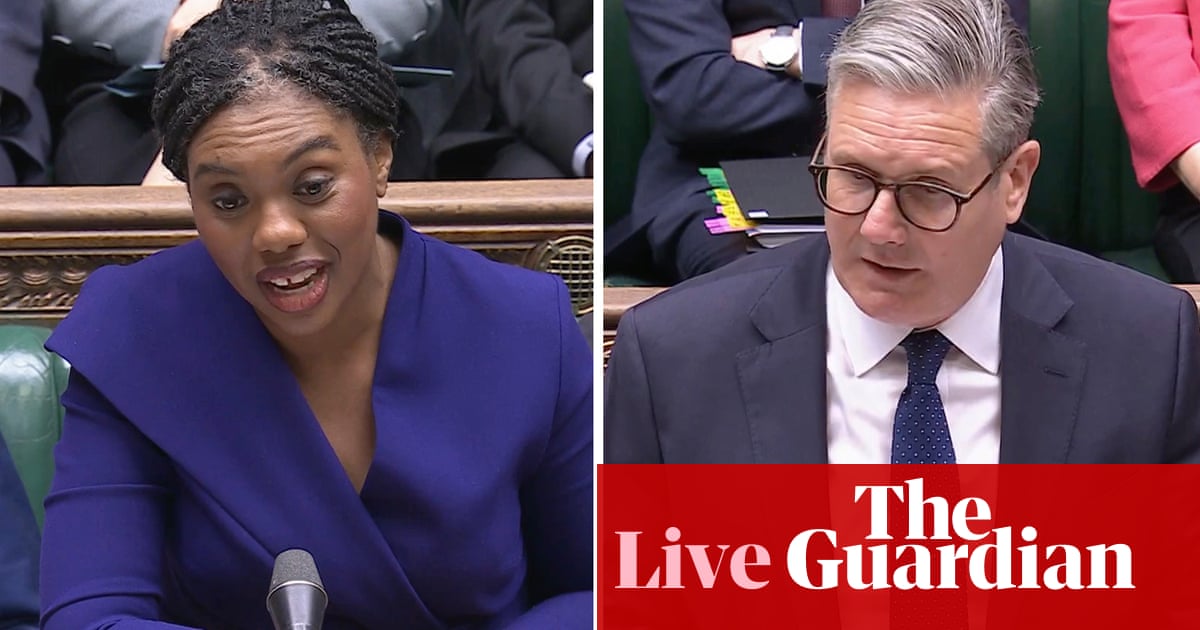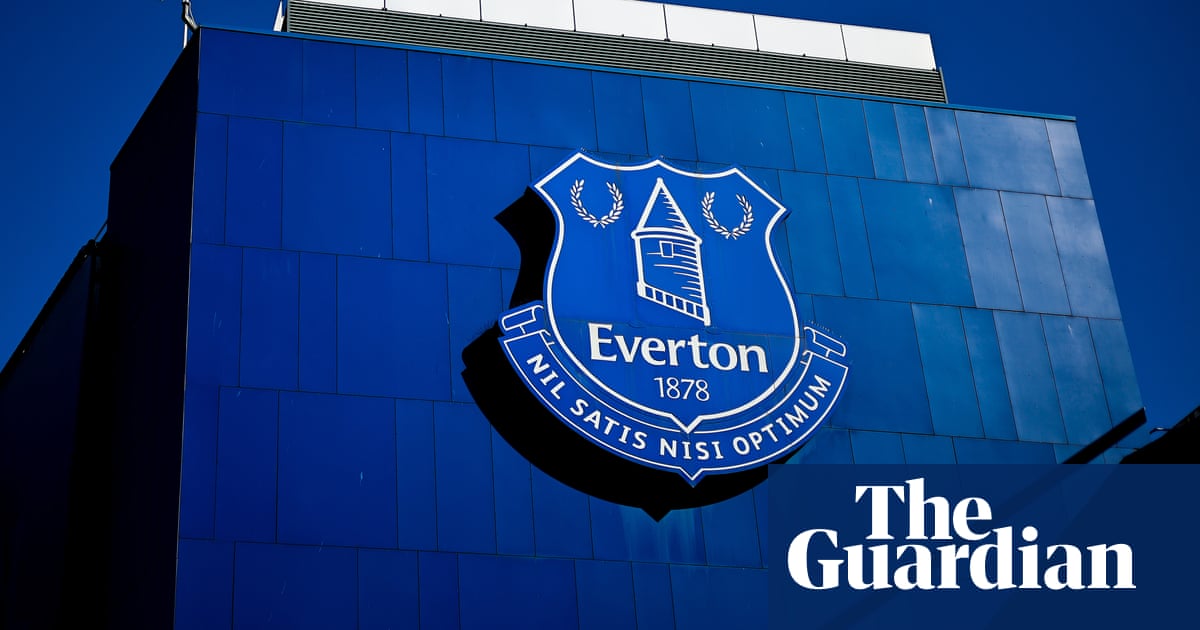Key events Show key events only Please turn on JavaScript to use this feature
US will aim for UK to cut car tariff to 2.5% from 10%
As the US is gearing up for trade negotiations with the UK, it will push for London to reduce its automotive tariff from 10% to 2.5%, the Wall Street Journal reports, citing people with knowledge of a draft document circulated by Donald Trump’s administration.
Rachel Reeves, the chancellor, is due to meet Treasury Secretary Scott Bessent this week to push Britain’s case for a trade deal with Washington.
Washington is preparing its terms for the negotiations, and wants London to reduce levies and other non-tariff barriers on a variety of goods, the report said, adding the Trump administration also wants more relaxed rules on US agricultural imports, including beef.
Trump imposed a 10% tariff on most imports from Britain and a 25% tariff on key sectors such as cars and steel.
It is unclear if the US would consider reducing its 10% tariff on the UK if London agrees to all of its trade demands, according to the Journal. Trump has previously said the 10% tariff is a “floor” for all nations, but also indicated there could be exceptions.
White House spokesman Kush Desai said:
The administration’s trade and economic team is working at breakneck speed to negotiate custom-tailored deals with our major trading partners. Any final decisions and agreements, however, will come from President Trump and President Trump only.
European stocks have also opened higher, as a wave of relief spread across markets.
The UK’s FTSE 100 index is up by 1.2% at 8,430, while the Italian FTSE MiB rose by 1.4%.
Gold, which surged through $3,500 an ounce yesterday, a new record high, is down by more than 2% at $3,307 an ounce, as demand for the safe-haven asset receded.
ING currency analyst Francesco Pesole explained:
Bessent threw a lifeline to fragile US sentiment with conciliatory remarks on the US-China trade war. Bessent said the current tariff situation is “unsustainable” and expects a de-escalation in the near term.
We could witness a period where the dollar is tossed around by headlines of Fed independence risk and market-friendly news on US tariff policy. What is clear by now is that no other G10 currency has a higher positive beta to trade news than the dollar.
Net-net, we still think the balance of risks remains skewed to the downside for the dollar in the near term, but we don’t expect a repetition of the one-way traffic in dollar selling we have witnessed of late. Looking a few weeks ahead, our preference is for a stabilisation in the dollar rather than another structural weakening.
Introduction: UK annual borrowing nearly £15bn above official forecast; stocks rise as Trump rows back on Fed attack
Good morning, and welcome to our rolling coverage of business, the financial markets, and the world economy.
Government borrowing in the UK rose more than expected last month, which means the government borrowed nearly £15bn more than forecast over the year than in the previous fiscal year, underlining the challenges the chancellor Rachel Reeves faces.
Borrowing – the difference between total public sector spending and income – was £16.4bn in March; this was £2.8bn higher than in March 2024, and the third-highest March borrowing since monthly records began in 1993.
This means the government borrowed £151.9bn in the fiscal year to March – £20.7bn more than in the previous year, and £14.6bn more than the £137.3bn forecast by the Office for Budget Responsibility (OBR), the arbiter of the public finances.
Public sector net borrowing excluding public sector banks was £151.9 billion (or 5.3% of GDP) in the 2024 to 2025 financial year,
£20.7 billion (or 0.5 percentage points) more than in the previous year and the third highest total on record.
Read more ➡️ https://t.co/OKGJdDm02v pic.twitter.com/obTVjjOX9x
Nabil Taleb, economist at PwC UK, said:
Debt interest payments reached £4.3bn in March, the highest March figure since monthly records began 27 years ago. This reflects the fiscal challenge the chancellor faces. Higher debt servicing costs as a share of total revenues will leave the public finances more exposed to future economic shocks.
Rachel Reeves continues to hold the fiscal line, but the next six months will be critical—and she needs some clear wins. While her spring statement restored the £9.9bn headroom, that cushion remains precarious. In the worst-case scenario outlined by the government’s independent forecaster, Trump’s new tariffs could alone shave 1% off UK GDP—enough to wipe out the headroom entirely. The rising cost of government borrowing and growing global uncertainty are compounding the pressure for Reeves to put tax rises on the table during the autumn budget.
Stocks and the dollar bounced back and oil prices rose, as Donald Trump rowed back on his attacks on America’s top central banker, whom he called a “major loser” on Monday for now cutting interest rates. The US president said he had no plans to fire Federal Reserve chair Jerome Powell, and hints at lower tariffs for China, also from the US treasury secretary, cheered investors. Scott Bessent said the current tariff situation is “unsustainable” and expects a de-escalation in the near term.
On Wall Street yesterday, Dow Jones Industrial Average, which tracks 30 large US companies, the broader S&P 500 and the Nasdaq all ended the day up more than 2.5% following Monday’s sell-off.
In Asia, Japan’s Nikkei rose by nearly 2% and Hong Kong’s Hang Seng was up 2.2% and the South Korean Kospi gained 1.6%.
The dollar, which hit a three-year low yesterday before recovering, rose by 0.25% against a basket of major currencies.
ING currency analyst Francesco Pesole said:
The dollar is enjoying some support thanks to a recovery in US market sentiment. At the moment, no other G10 currency has a higher beta than the dollar to US trade news, and Treasury Secretary Scott Bessent’s seemingly conciliatory comments on a US-China trade de-escalation could favour a dollar stabilisation.
In oil markets, Brent crude is 1.3% ahead at $68.32 a barrel while US crude rose by 1.37% to $64.55 a barrel. Signs of de-escalation are positive for the world economy, which would boost demand for crude.
The Agenda
-
9am BST: Eurozone HCOB PMI surveys flash for April
-
9.30am BST: S&P Global PMIs flash for April
10am BST: Eurozone trade for February -
2.45pm BST:: US S&P Global PMIs flash for April
-
5.30pm BST: Bank of England governor Andrew Bailey speaks

 5 hours ago
4
5 hours ago
4













































